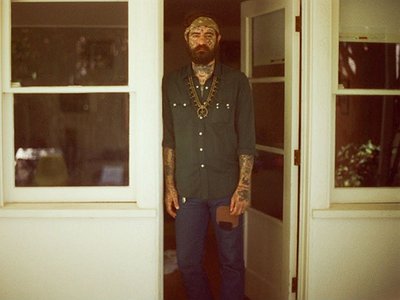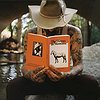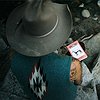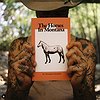Name: Christopher Mansfield aka Fences
Nationality: American
Occupation: Singer, songwriter, poet/author
Current release: Christopher Mansfield's first book of poetry, The Horses In Montana, is out via Enci. His latest full-length release under the Fences moniker, Bright Soil, is still available.
Recommendations: “Jesus Shot Me In The Head”. Hiss Golden Messenger.
Austin Eddy paints these beautiful birds.
If you enjoyed this Christopher Mansfield / Fences interview and would like to keep up to date with his releases and live dates, visit him on Instagram, Facebook, and twitter.
When did you start writing? What what it about literature and writing that drew you to it?
Well I started writing around the time the American school system showed me how. The chalk board and the shapes. Cursive lessons.
As far as realizing how to convey something with that human form of communication other than cold information … pretty recently. I’m not even sure I can do that or if things even drenched with all the slick writing tricks and poetry are anything other than cold information just decorated differently.
Which authors, or books captured your imagination in the beginning?
Probably Gary Paulson’s The Hatchet. A boy alone in the woods figuring it out or else he will die.
I feel exactly like that now as a man but instead of trees and grizzly bears it’s buildings and women.
How would you describe your development as an author in terms of interests and challenges, searching for a personal voice, as well as breakthroughs?
To be honest … I stared at the page and said “there is no way I can do this”. Then I just did it anyway. The long form stuff is fairly hard but in a strange way the one sentence work is almost harder.
With that said we all know how to say “I love you”. Three words. If you mean them it can change the course of two peoples' lives and then everyone after them that this love created.
To me, this is writing.
Tell me a bit about your sense of identity and how it influences both your preferences as a reader and your creativity as a writer, please.
I waiver between knowing who I am to an exhausting degree and having no idea who I am to an exhausting relief. I just think life is rather intense.
The Bible was written to explain life and you wrote to ask me questions and I’m writing to answer. Creativity is just creating and creation. If this is true we are all creative by default. Even if we destroy, we created destruction.
How do you see the relationship between style, form, plot and storytelling – and how would you rate their importance for you, respectively?
I mean you have Hemingway saying “there is a cup on the table” and then David Foster Wallace talking about the cup for 15 pages.
I mostly write something and read it back. If it feels soft and true and makes me sad then I know that’s how to describe the cup. 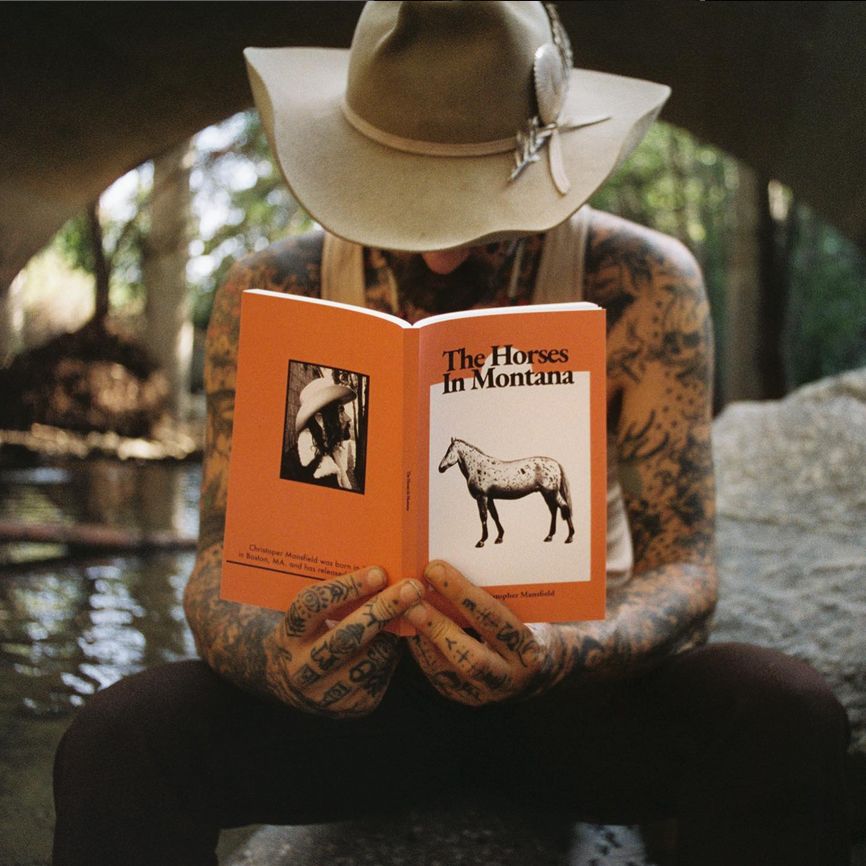
Christopher Mansfield / Fences Interview Image (c) the artist
Observation and research are often quoted as important elements of the writing process. Can you tell us a bit about your perspective on them?
It depends if you’re writing about something you don’t know about deeply. You’ll really have to look it up. The cool thing about that is by the time you read about maybe … being a pilot in order to write about it, you could maybe fly. I’ll admit my laziness in that respect.
I wrote about my mother a lot. I know her well enough and she is not able to be researched.
How do you see the relationship between conscious planning and tapping into the subconscious; between improvisation and composition? When dealing with the end of a story, for example, do you tend to minutely map it out or follow the logic of the narrative as it unfolds itself?
This is a really good question. I can’t speak for other writers but with my story “popcorn”. You work backwards.
I knew it would end that way and wanted to just get there. It’s really hard but if you break into the “world” you’re making you just live it with your fingers for a little while. In a huge and true way, it feels like escapism.
Take us through a day in your life, from a possible morning routine through to your work, please.
I stare a lot and think too much. Run the shower so long the hot water runs out. Kiss the baby. Then struggle to see what outfit to wear.
Call a friend in another state in another state. Write three songs and abandon them all.
Could you describe your creative process on the basis of a piece, book, or novel that's particularly dear to you, please?
Sure. Live it. Even if it hurts. Write it down. 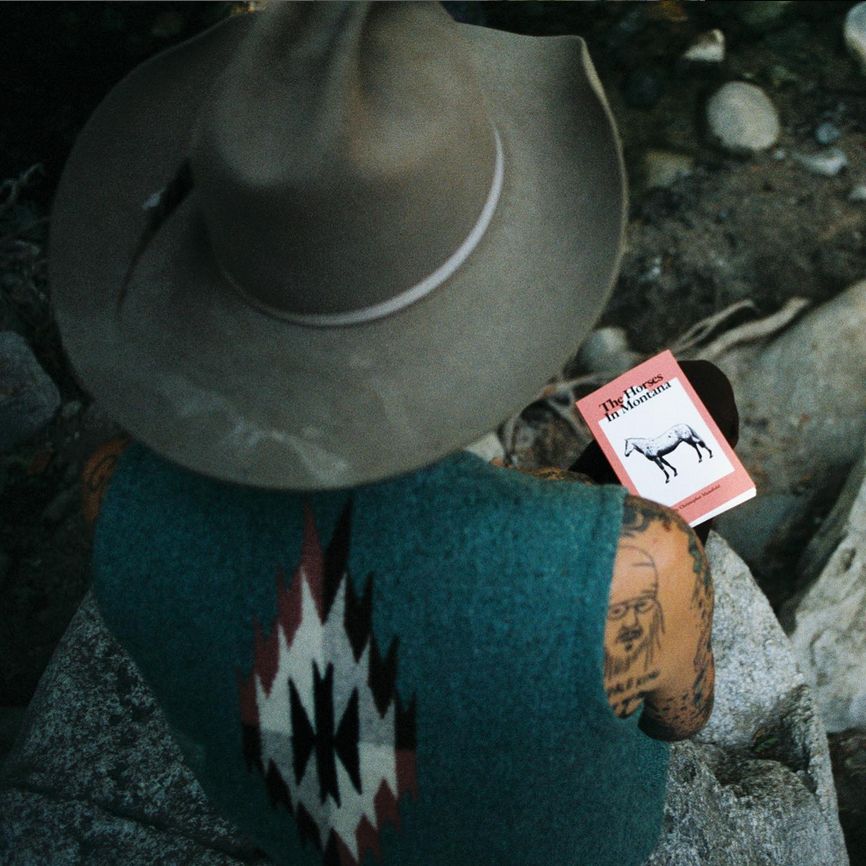
Christopher Mansfield / Fences Interview Image (c) the artist
Literature works with sense impressions in a different way than the other arts. How do you use them in your writing?
These are such great questions.
Your wife’s belly could feel like so many beautiful things. It’s an honor to find them.
How do your work and your creativity relate to the world and what is the role of literature in society?
To be absolutely honest, I have zero social commentary. I can’t handle it and I spend most of my time ignoring all of that. I know only one war and sense of poverty and it’s the worst one because it’s mine alone.
My empathy would absolutely cripple me if I wrote about anything other than my small and rather pointless life.
Art can be a way of dealing with the big topics in life: Life, loss, death, love, pain, and many more. In which way and on which occasions has literature or poetry – both your own or that of others - contributed to your understanding of these questions?
Shakespeare all the worlds a stage says it all. It’s so beautiful.
There seems to be increasing interest in a functional, “rational” and scientific approach to the arts. How do you see the connection between literature and science and what can these two fields reveal about each other?
Science is just us proving the existence of God with defiance. 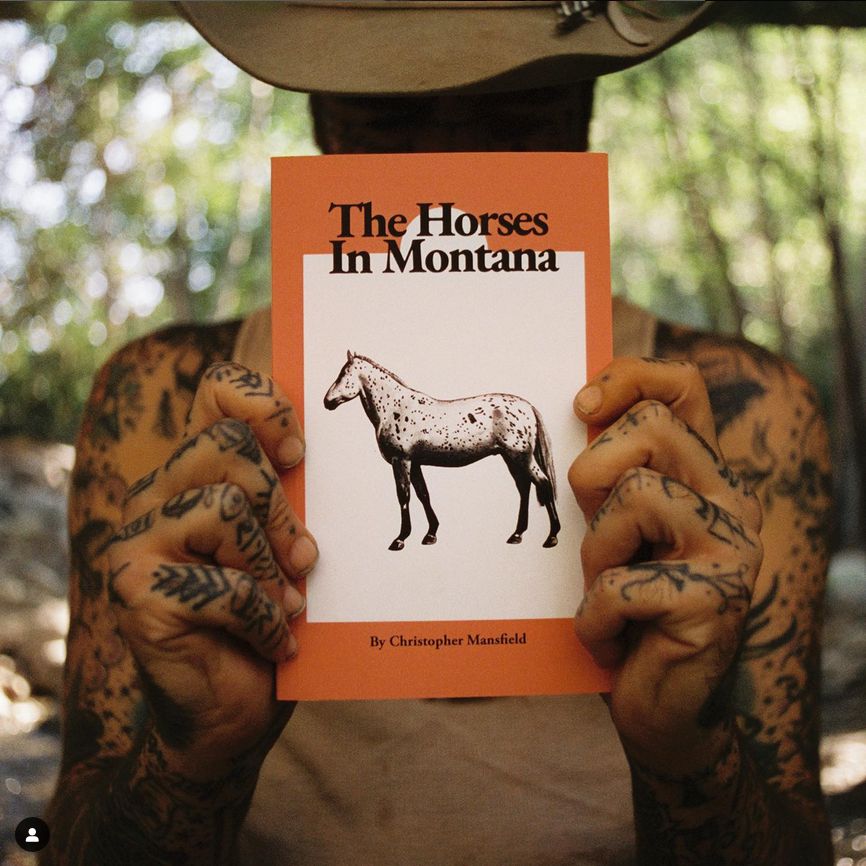
Christopher Mansfield / Fences Interview Image (c) the artist
Art can be a purpose in its own right, but it can also directly feed back into everyday life, take on a social and political role and lead to more engagement. Can you describe your approach to art and being an artist?
It feels simple in a “she left” so then you write, “I miss her”. Or “She came” so then you write “thank you”.
Mathematics of the spiritual realm, governing dynamics.
Creativity can reach many different corners of our lives. Do you feel as though writing or performing a piece of music is inherently different from something like making a great cup of coffee? What do you express through music that you couldn't or wouldn't in more 'mundane' tasks?
Wow… I … I could give some bullshit about all of life being art but that would sort of be me just trying to sound like artist.
I suppose let me put it like, you build a fire so you don’t die but then the stories you tell by the fire is the art. We need the mundane but we need to describe it.



